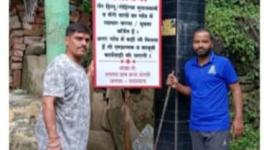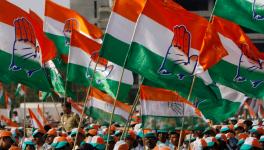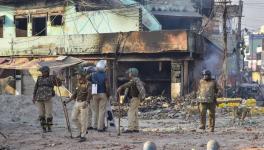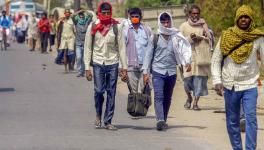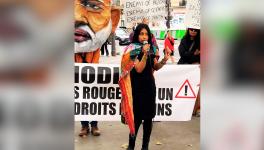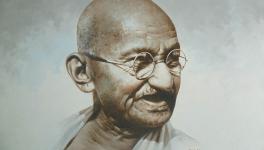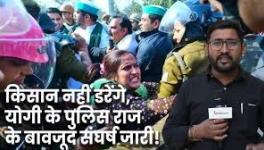COVID-19: Caste, Communal Divide Deepens Even as Cases Continue to Rise in UP
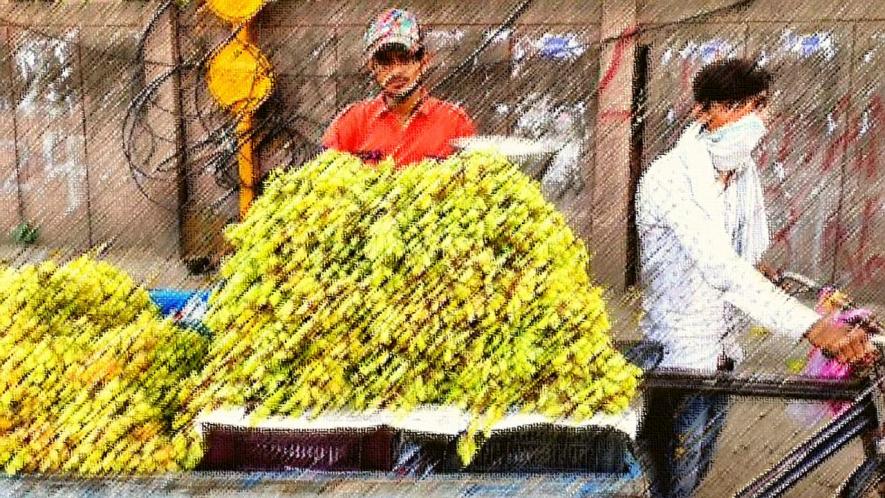
Representational image. | Image Courtesy: Asiaville
Lucknow: Pankaj Gupta, 23, alias Nitesh, these days is selling vegetables on his cart in the small town of Bachhrawan, about 60 km from Lucknow in Uttar Pradesh. The unique feature of his cart is a ‘saffron flag’ which saves him from getting beaten up and also gets him good business in Hindu localities.
Nitesh, who was earlier running a small eatery, said that he had never seen such deep communal divisions in his town, and people hardly cared so much about religion before. “I was born in a Hindu family but grew among people from all religions. We were not taught to discriminate but this coronavirus has created a lot of discrimination based on caste and religion in the society,” he said.
The young vegetable monger added, “Before buying vegetables people, especially in the Hindu dominant areas, want to see my Aadhar card, want to know my name and then only they come to buy the stuff they want. In the first few days people were angry and when I did not show them my Aadhar card, they shooed me away and one young lad even tried to assault me and hurled the choicest of abuses.”
Also read: Combating Hate Virus in Times of Corona
“This is all happening because of the viral WhatsApp videos filled with hatred as I have been facing it first hand. People ask me “Thook to nahi lagaya hai na (You haven’t spit on it right?), Jamatiyo ke pass se to nahi a rahe ho na (You’re not coming from Jamati’s place are you?),” and things like that but I have to earn my livelihood and I cannot fall for such things. I do not ask the religion of the person from whom I buy the vegetables and they do not ask my religion either,” he alleged.
CASTE DISCRIMINATION IN QUARANTINE CENTRES
The quarantine centres, mostly set up in the primary schools in rural parts of the state, are allegedly witnessing a lot of caste-based discrimination. From village head reportedly turning a blind eye to check on the quarantine facilities to mid-day meal cooks allegedly refusing to cook for people belonging to lower castes, a lot of discrimination-based complaints have been reported to the authorities, a highly placed officer in the government told NewsClick.
The officer alleged that WhatsApp viral messages have done a lot of damage and due to this, discrimination has increased in the society. “Discrimination is one of the main reasons that the government has to appoint nodal officers to check on everything in the districts with large number of active COVID-19 patients,” the officer said, adding, “The government does not want to take any risk by letting the people who are discriminating go free.”
Recently, a police complaint was also registered against the village head of Pimpri-Shadipur, in Pisawa block of Sitapur district, Om Prakash Verma, for not providing the essential supplies at the quarantine centres. His representative told NewsClick over phone, “How can Pradhan jee (village head) go between people who are virus spreaders (pointing towards the religious identities of the people in quarantine).”
PM Modi’s request hardly making any difference
“COVID-19 does not see race, religion, colour, caste, creed, language or border before striking. Our response and conduct thereafter should attach primacy to unity and brotherhood. We are in this together,” wrote Prime Minister Narendra Modi in his recent Linked.in blog but the appeal does not seem to have made any difference with the religion and caste divide further deepening in the society.
Also read: COVID-19: Series of Fake News Targeting Muslims in UP Exposed by Police, District Admin
Madhu Garg, a social activist affiliated with the All India Democratic Women’s Association (AIDWA) said that they are also coming across several cases of alleged communal and caste discrimination.
“What to say about others as people close to my family have been affected by this Hindu-Muslim stigma. There has been so much media trial about the Jamati incident that it has now started taking a toll in personal relationships. People do not want to buy stuff from Muslim vendors and are justifying their discrimination by giving various types of excuses. They are in-fact giving a chance for this ruling party to communalise the matter and gain advantage out of it,” she alleged.
Meanwhile, police in Bihar’s Bihar Sharif town have booked two members of the right-wing outfit, Bajarang Dal, for unfurling saffron flags at some vegetable, fruit and ration shops belonging to the Hindu community and urging the community to buy essentials from the shops owned by the Hindus.
However, activist Samina Bano, who has been distributing ration and cooked meals among the needy since the first day of lockdown disagreed saying that there has been no communal divide in the society. “To be honest I have not come across any such case of communal divide in the society. In fact, I strongly believe that communal harmony has become more intact now because when we go to distribute food no one asks our religion. Bhook dharm aur jaat dekh kar nahi lagti (Hunger does not discriminate between religion and caste),” she told NewsClick over phone.
Get the latest reports & analysis with people's perspective on Protests, movements & deep analytical videos, discussions of the current affairs in your Telegram app. Subscribe to NewsClick's Telegram channel & get Real-Time updates on stories, as they get published on our website.










